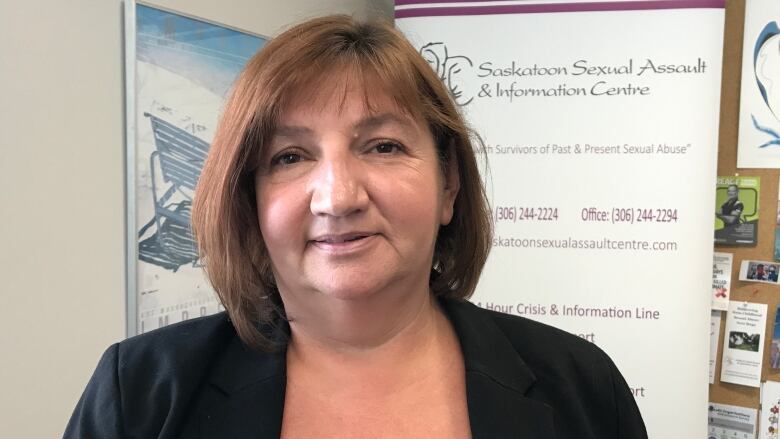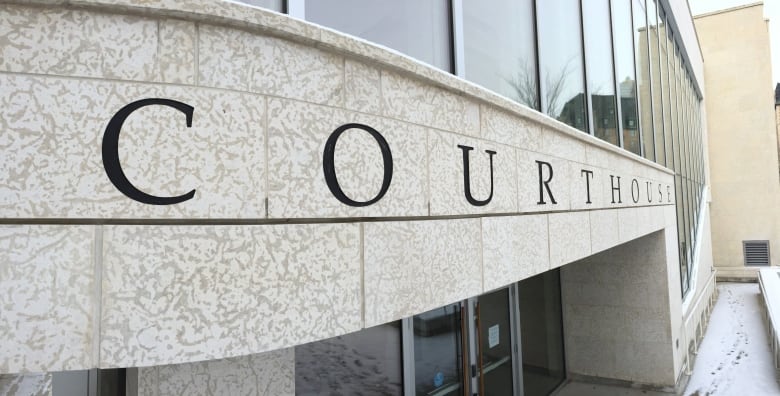Saskatoon sexual assault centre ends hospital support program for assault survivors amid funding struggles
24-hour crisis line, court and police visit accompaniment will continue

A support program for victims of sexual assault in Saskatoon hospitals has ended,according to the executive director of the SaskatoonSexual Assault and Information Centre.
"We regret that we were unable to continue to provide 24-hour hospital support to survivors in emergency rooms," Faye Davis told CBCNews in an emailed statement.
Having a trained support person is crucial to a victim of sexual violence feeling supported in a very difficult time.- Faye Davis, SSAIC executive director
During a hospital visit, along with treatment of any injuries, a forensic exam is done with the victim's permission to collect evidence of a sexual attack.
The now-cancelled program provided support during what could be an uncomfortable, difficult experience.
"We know that whether reporting to hospital for injuries or STD/pregnancy testing or full forensic evidence collection, having a trained support person is crucial to a victim of sexual violence feeling supported in a very difficult time," Davis said.
In Saskatoon, victims have not had access to that support since May 1.
Demand for the service has risen over the last few years, but SSAIC's funding has remained flat, leading to the program being cut and a restructuring of the centre's crisis line.
SSAIC is in discussions with the Saskatchewan Health Authority to determine whether the health region can address the gap in service.
24-hour crisis line restructured but intact
SSAIC runs a crisis line for sexual assault survivors 24 hours a day, 365 days a year. It used to be staffed by a part-time co-ordinator and an administration assistant. The program engaged about 50 volunteers a year.
Now, the line is answered by counselling staff in the centreduring the dayand is transferred after office hours to Mobile Crisis, Saskatoon's Crisis Intervention Service, under a contract as a cost-saving measure.
Seven casual support workers were also laid off from their positions as a result of the restructuring.
SSAIC is still able to offer accompaniments for survivors going to police stations and court, since court appearances and visits to police stations often coincide with office hours.

The Government of Saskatchewan provides $1.2 million each year to SSAIC and six other centres in the province.
Saskatchewan also provides $3.9 million to police-based victim services which includes help for victims in court, like support peopleand video conferencing to allow a victim's testimony to be given from outside the courtroom.
SSAIC has received $489,000 in funding from the provincial government every year for the last three years. Funding will continue at the same rate for the next three years.
Sexual assault reporting to police has climbed 30 per cent over the last five years, according to data from the Saskatoon PoliceService.












_(720p).jpg)


 OFFICIAL HD MUSIC VIDEO.jpg)
.jpg)



























































































